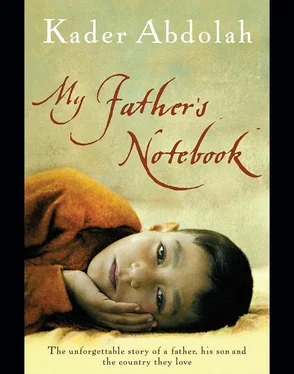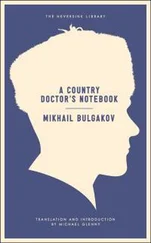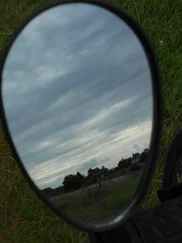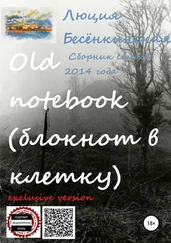And then, this business about virtue rewarded! Oh, oh, oh! I’ve been a coffee broker for seventeen years—37 Lauriergracht — so I’ve seen quite a bit in my time; but I can’t help always getting frightfully annoyed when I see God’s precious truth so shamefully distorted. Virtue rewarded? If it was, wouldn’t that make virtue an article of commerce? Things just aren’t like that in the world, and it’s a good thing they’re not. For what merit would there be in virtue if it was rewarded? So why do people have to invent such infamous lies? …
All lies, abominable lies!
I’m virtuous myself, but do I ask a reward for it? … And the fact that I am virtuous can be seen from my love of truth. That is my strongest characteristic, after my devotion to the Faith. And I should like you to be convinced of this, reader, because it is my excuse for writing this book…. I am, let me say, a coffee broker, 37 Lauriergracht. Well then, reader, it is my unimpeachable love of truth, and my enthusiasm for business, that you have to thank for these pages.
Reader! I’ve included this passage from Multatuli’s Max Havelaar because what that coffee broker says has parallels to my story. Multatuli writes about a Mr Droogstoppel, a coffee broker living at No. 37 Lauriergracht. That same Mr Droogstoppel tells us, in turn, the story of Max Havelaar. And that’s how you end up reading a book about both a coffee broker and a man named Max Havelaar.
In the novel, Mr Droogstoppel is given a package — the writings of Max Havelaar. He uses it to write a book.
A few months ago, I, too, received a package — my father’s notebook. I’ve never written a book before, but I’d like to try and write one now, because, if it’s at all possible, I’d like to put my father’s writings into a readable form.
“Nothing but lies,” says the coffee broker. “All nonsense and lies.”
I admit that I’ve set about my work in the same way. I’m not a coffee broker and I’ve never been involved in the coffee trade. I’m a foreigner who’s been living in Holland for several years.
My name is Ishmael, Ishmael Mahmud Ghaznavi Khorasani. I don’t live at 37 Lauriergracht, but at 21 Nieuwgracht. And I don’t live in Amsterdam, but in the Flevopolder — the reclaimed ground that the Dutch have wrested from the sea.
I’m sitting at my desk in the attic, staring out of the window. Everything in the Flevopolder is new: the soil still smells of fish, the trees are young and the birds build their nests with fresh twigs. There are no ancient words, no ancient love stories, no ancient feuds.
Everything in my father’s notebook is old: the mountains, the well, the cave, the cuneiform relief, even the railway. That’s why I don’t dare put pen to paper. I can’t imagine writing a novel on this new ground.
I look at the dyke and see the sea. At least the sea is old, though, to be honest, it isn’t actually the sea anymore, but just a small part of it that’s been dyked-in by the Dutch. Much as I, a little patch of ancient Persian culture, have been surrounded by a Dutch dyke.
Maybe this ex-sea can help me.
The city in which I live is new, but the remains of ancient habitation are all around me. That’s exactly what I need.
Just as Holland invented this ground, this landscape, I can use my father’s cuneiform writings to invent something new.
There are poets in this polder and I know a number of them. We meet once a month in a new café and read our work to each other.
Here are a few poems from a collection titled Flevoland . Annemarie wrote:
Above this landscape
the wind breathes like a father
caresses the waves from time to time
and buttresses the voices in the land.
Tineke penned these lines:
Man and his machines have come.
There where wind and waves
played their powerful games
the tide was turned.
The sea bed has been laid bare.
And Margryt wrote this poem:
No language. No ancient tale that you can
fall back on. Land stretching into infinity.
A map, plotting a railway track, and bridges
connecting one blank space to another. Not a word
to assure us that this will be a safe place to live.
I’m writing my story in Dutch — the language of the Dutch classics and thus of the following long-dead writers and poets: the anonymous author of the miracle play Mariken van Nieumeghen , Carel van Mander, Alfred Hegenscheidt, Willem van Hildegaersberch, Agathan Marius Courier, Dubekart, Antonie van der Woordt, Dirck Raphaëlsz Camp huysen, Caspar van Baerle, also known as Barlaeus, and, in more recent centuries, Louis Couperus and Eduard Douwes Dekker, also known as Multatuli.
I write in my new language because that’s what refugees do.
I begin:
Every one of the blind men in the village had a son. A coincidence? I don’t know, but I suspect it’s nature’s way of making up the balance.
The sons became their fathers’ eyes. The moment the baby started to crawl, the blind father placed the palm of his left hand on the baby’s shoulder and showed him how to be his guide. The child soon realised that he was an extension of his father.
The sons of the deaf-mutes had an even more difficult task, since they had to serve as the mouths, minds and memories of their fathers. The families and the other villagers did their best to teach these boys the language of adults. The imams even taught them how to read the Holy Book at a very young age. They had little contact with other children, since they were always with the men. They were expected to fulfil family obligations and to be present at both feasts and funerals.
In the deepest darkness of my memory, a baby crawls over the floor. A hand appears, takes hold of its head from behind and gently turns it upwards and to the right. This is followed by the words “ Negah kon. Negah kon. An-ja negah kon ”—“Look, look up here.”
The baby looks up at a mouth, at a man, at the father who smiles.
Another scene hangs like a black-and-white photograph in the strong-room of my memory. I’m sitting on my knees on a carpet beneath an old almond tree, with my head bent over a book. An aged hand appears and points to a verse in the book. I can’t see which poem it is, but the smell of opium suddenly fills my nostrils, and I recall the love poem of the medieval Persian poet Hafez:
Gar che sad rud ast az chesh-e man rawan.
Yad-e rud zendeh-kar an yad bad.
Tears of longing roll down my cheeks like a hundred rivers,
And remind me of the river flowing through my home town.
Otherwise I remember very little. But in the next chapter our belongings are being loaded into a covered wagon. We’re moving. I was only seven or eight years old, and yet the scene stands out clearly in my memory. I see my mother running to the house of Kazem Khan. I hear her call: “Uncle! Help! Akbar’s gone mad!”
Then I hear the clatter of hooves as Kazem Khan’s horse gallops into our courtyard.
“Where’s Akbar?”
Aga Akbar suddenly decides to move.
Why? No one knows.

Life in Saffron Village went on as usual. My mother, Tina, had three other children — three girls. Aga Akbar was, therefore, the father of four healthy children, who not only could hear well but could also express themselves extremely well in both Farsi and sign language.
Читать дальше













